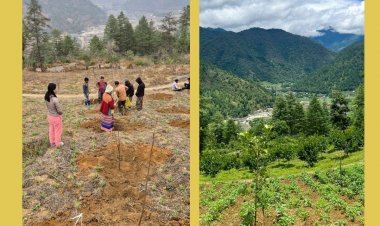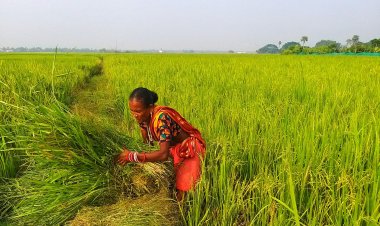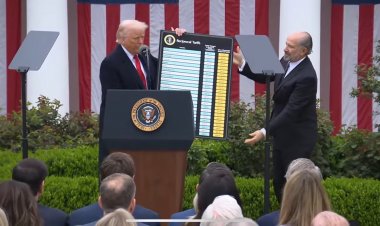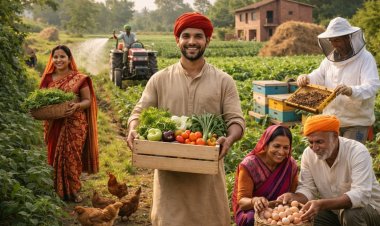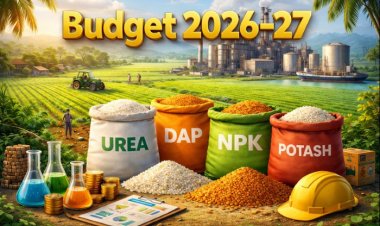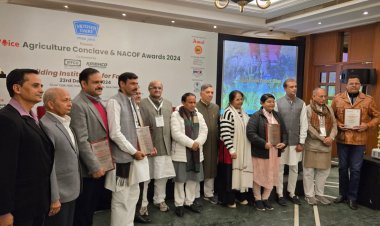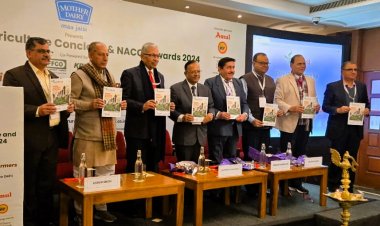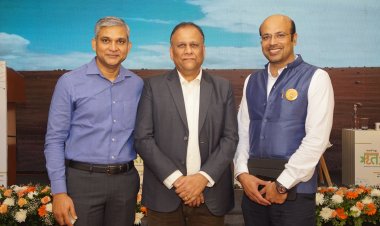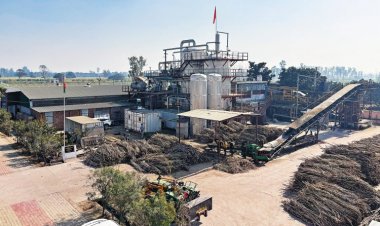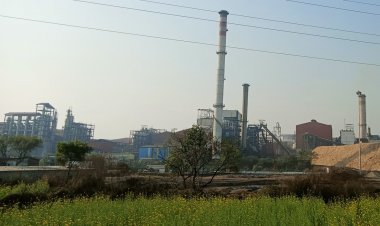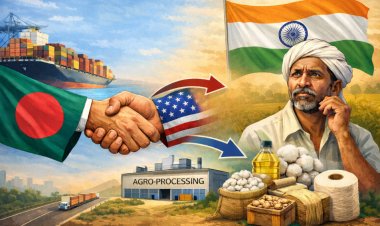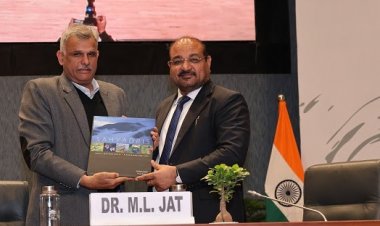In 2022 Inclusive agriculture is the right road map for development
The policymakers will have to get away from the use of words like “instant solution” for a particular problem directly related to the basic needs of the people or SDGs and look for permanent solutions to the problems of the country. Corruption, illiteracy, education system, healthcare system, poverty and climate change are hot issues in the country. These issues need to be resolved on a priority basis.
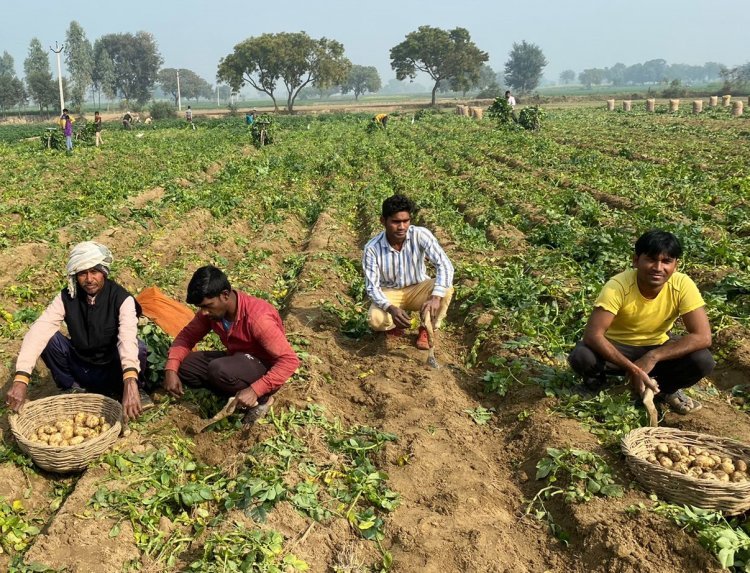
The policymakers of the country will have to get away from the use of words like “instant solution” for a particular problem directly related to the basic needs of the people or Sustainable Development Goals (SDGs) and look for permanent solutions to the problems of the country. Corruption, illiteracy, education system, healthcare system, poverty, climate change, depleting groundwater level, air pollution, solid waste, women empowerment, unemployment, agricultural crisis, flood, drought, pending justice, GDP etc. are hot issues in the country. These issues need to be resolved on a priority basis.
The problem is that policymakers, social workers, public representatives, governance, administration all spend their energy on solving the current problems one by one. We have to look for one solution to solve the present crisis. Therefore, we have to decide a proper path for the development of the country that should be based on an equitable economy. Because, according to the World Inequality Report, India stands as a "poor and very unequal country, with a prosperous elite". Because the top 10 per cent account for 57 per cent of the total national income, the top 1 per cent have 22 per cent, while the bottom 50 per cent have just 13 per cent. Apart from this, the era of Covid epidemic proved to be a golden age for billionaires. Therefore, it proves that a circular economy will not be established until courses like skills on the basis of humanitarian ground shall be included in the education.
What should be the best path to resolve the problems like education, health, economy and gross domestic product, agriculture, employment, climate change etc.? Which of the issues should be kept at the centre so that all the problems can be addressed? All the present crises are interrelated. It is need of the hour to mitigate the disturbed nature cycle as Bill Gates has warned again about health that we are not ready for the next epidemic.
We are told that to get rid of the problem of climate change, efforts should be made to reduce the use of fuel and coal; to raise the farmers’ income, farming should be done as per Darwin's theory; to manage flood and drought, dams should be built. For employment generation, there are proposals to establish industries. Even intellectuals are concerned about the education for children to understand their body (sex) etc. Thus, there are various opinions regarding how to solve the present problems.
But my own belief is that in a country like India, non-violent agriculture is the only medium through which we can address all problems. Through non-violent agriculture, the issues related to water, land, biodiversity, climate change, soil, employment, malnutrition, women's empowerment, migration, animals, economy, education, health and universal equality can be solved. That is why the government should make plans by keeping agriculture at the centre. Only then the country can propound the principle of sarvajan hitay, sarvajan sukhay (for the welfare of all, for the happiness of all).
The developmental plans made till now have had an adverse impact on the ecological wealth of the country. Out of all the plans made for the development of the country so far, the Green Revolution has swallowed the fertile soil, health, livestock etc., the damming of rivers has affected the flora and fauna, the rush for Gross Domestic Product (GDP) rankings has swallowed humanity and the green gold.
When it comes to food security, population has become a liability for India. With only 2.4 per cent of the world's total land area, India accounts for 14 per cent of the world's total population. Again, India accounts for only about 4 per cent of water resources. This is the reason why Indians are troubled by water scarcity. The per capita water availability in 1951 was 5,177 cubic metres. In the 2011 Census figures, this came down to 1,545 cubic metres — a decline of almost 70 per cent in 60 years. According to the new report 'State of India's Environment in 2021' by the Centre for Science and Environment (CSE), India has four biodiversity hotspots and 90 per cent of the region has been lost. Not only this, according to the Air Quality Life Index (AQLI) report of the University of Chicago, India is the most polluted country in the world, where more than 480 million people or about 40 per cent of its population live in the Indo-Gangetic plains in the north, where pollution levels regularly exceed levels found elsewhere in the world by orders of magnitude.
As far as climate change is concerned, according to the report released by National Centers for Environmental Information (NCEI), the average temperature of November 2021 was recorded 0.91oC above normal. This is the fourth time in 142 years that increased temperatures have been recorded in the month of November.
To balance the cycle of nature for survival, we cannot overlook even a tiny or small creature. For example, if the bees became extinct it would destroy the entire human society because bees cannot be replaced by any other thing or animal. The relationships between bees, birds, flowers and plants are the most comprehensive, harmonious and interdependent on earth. About 100 million years ago, this earth was enriched by the harmony between bees and flowers. Therefore, bees are the agents for the upliftment of the entire human race on this planet.
According to a survey, it was also found that 87 major food crops in this world are fully or partially operated by pollination. Bees contribute a lot to this process of pollination. Due to this, they provide food to thousands of different species of animals and birds. There are different species of plants found on earth, for which only bees are responsible.
Therefore, in order to balance the extinct species and the cycles of nature, India should initiate a process to form one law for environmental protection all over the world and support declaring ecocide as the fifth international crime. To implement the environmental rules and regulations, there should be a comprehensive law for the protection of the five elements in the country. Separate laws for each, i.e., biodiversity, water, air etc., cause problems in the implementation of environmental protection laws. Those who intentionally harm the environment easily escape.
Through capitalism, no one can get a harmonious development. Even Albert Einstein said that the result of these developments is only for an elite class that controls the power of a democratically organized political society. For sustainable development, the use of natural resources (water, minerals) should be done only after assessing the environmental carrying capacity of the country.
Besides, the government should provide three to six months’ practical training at farmhouses to the students of graduate and post-graduate levels to learn all the aspects of life. Agriculture is the basis of life for various biological needs of the body. Such government programmes will connect the youth to agriculture. This will also lead to agricultural monitoring of farmers, new inventions in the agriculture sector and promotion of agricultural industries at the village level.
For development, only big projects are not the solution. There are many such examples in which even small projects have yielded fruitful results. If future development plans are made with the Gandhian principles at their core, the country will be able to move in an equitable manner towards inclusive development. The central government has implemented many schemes for village self-government as told by Gandhi. But negating some aspects on the grounds of GDP cannot be considered good for the development of the country. For example, under the peninsular rivers linking project, the real values of water, forest and land have been ignored in the linking of the Ken and Betwa rivers. It has been proved in Bundelkhand that water can be made available through farm ponds for irrigation and drinking purposes for the people without any environmental and social harm. Therefore, the government should implement small projects for development to ensure the livelihood of the poor people with sustainable agriculture. It is the need of the hour is to make sure that today’s greed does not affect tomorrow’s needs. In a nutshell, sustainable agriculture is a practice of mindful living.
(Gunjan Mishra is a Bundelkhand-based environmentalist. The views expressed here are his own.)



 Join the RuralVoice whatsapp group
Join the RuralVoice whatsapp group

















